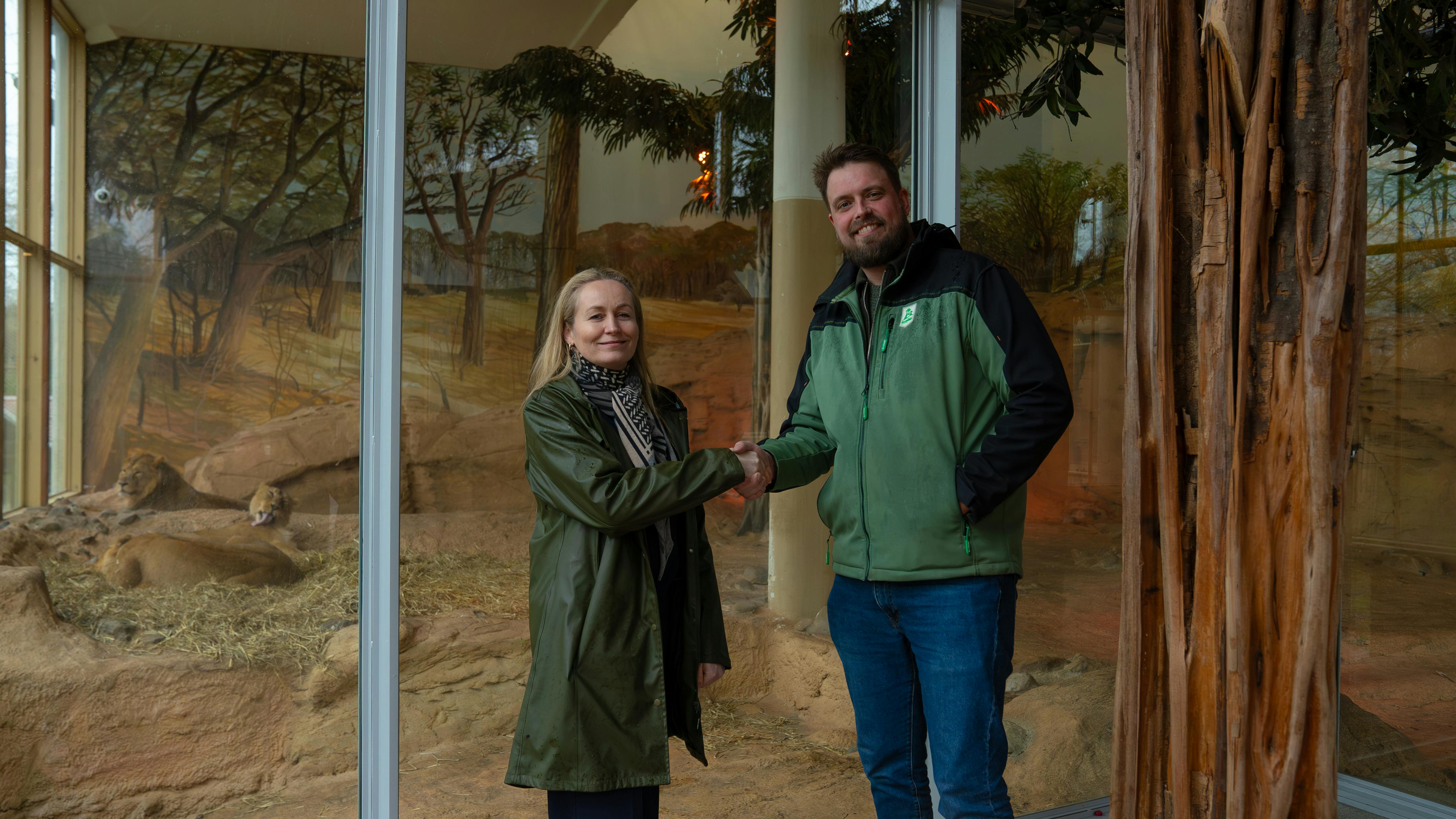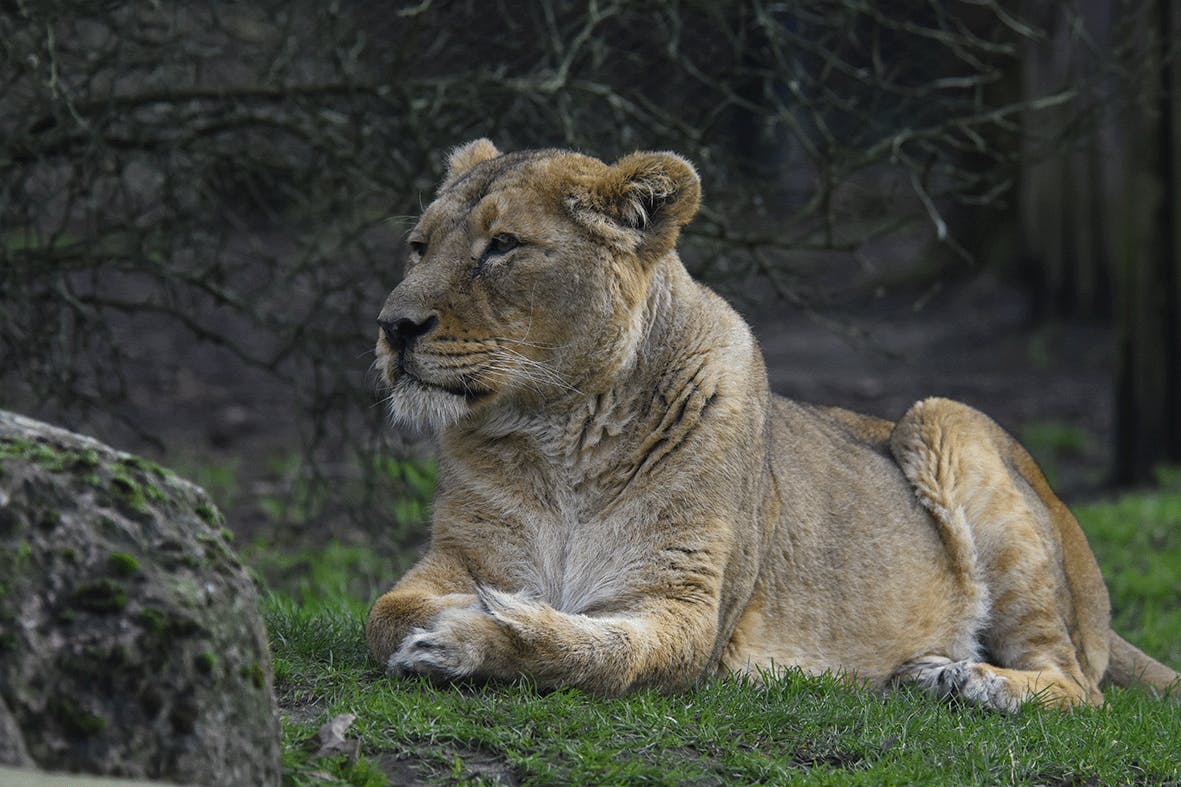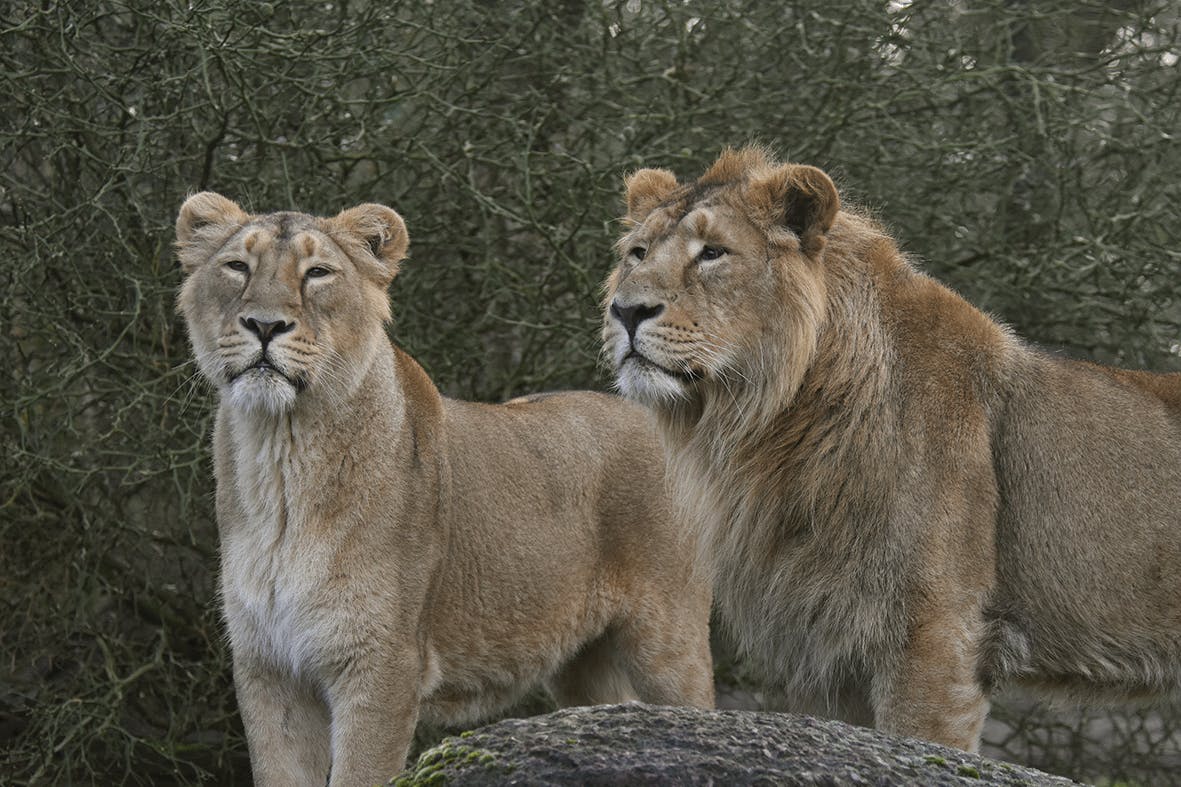

This week marked an important milestone as Diergaarde Blijdorp in Rotterdam officially received the studbook for the Asiatic lion. The current studbook keeper, Rikke Nielsen from Aalborg Zoo in Denmark, recently visited specifically to share her knowledge. Alongside species like the Rüppell's griffon vulture, Dalmatian pelican, Asian elephant, tufted deer, red panda, Egyptian tortoise, and the ray, the Asiatic lion is another species for which Blijdorp now manages the population program.

With Jos Hartog as the coordinator, Diergaarde Blijdorp leads the effort to prevent the extremely rare Asiatic lion from becoming extinct. Currently, only about 600 of these magnificent animals remain in the wild, almost all of them in Gir National Park in India. Additionally, 137 individuals live in zoos worldwide. The entire global population descends from approximately 30 animals, making the studbook an essential and critical tool for maintaining a genetically healthy reserve population.

Diergaarde Blijdorp is particularly proud to manage the studbook for two main reasons. Driven by its new mission and vision, the Rotterdam zoo aims not only to contribute to nature restoration and species conservation through a healthy reserve population but also to support efforts in the animals' native habitat. This is the third Indian studbook managed by Blijdorp, alongside those for the Asian elephant and red panda. This gives Blijdorp significant familiarity with the culture, opportunities, and (bureaucratic) challenges within the world's largest democracy, benefiting their conservation efforts.

Last year, Diergaarde Blijdorp presented its Masterplan 2050. The zoo plans to focus more on international projects and aims to single-handedly save around ten animal and plant species from extinction. With the addition of the Asiatic lion, the zoo effectively adds an eleventh species to this list. Initial steps towards breeding efforts have been taken with the introduction of the older lioness Lalana and the younger Reena to the young male lion who has been at Blijdorp for a few months. Following this successful introduction, there is hope for healthy cubs in the near future. Until then, Diergaarde Blijdorp is committed to securing the future of this beautiful species every day.